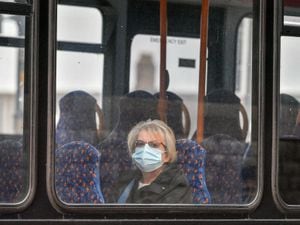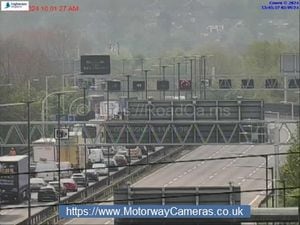'Under threat': Concerns over future funding for Wolverhampton bus services
Transport bosses in Wolverhampton have expressed concerns over the future of bus services in the city, following the introduction of the new West Midlands Combined Authority’s (WMCA) enhanced partnership.

Wolverhampton Council cabinet members on Wednesday approved the decision to join the West Midlands plan, but raised fears over future funding and potential cuts threatening services.
The enhanced partnership has been designed with a view to introducing a number of incentives to get people out of their cars and on buses, and also to provide bus travel for specific groups who suffer social exclusion because they are unable to access transport.
Councillor Steve Evans, Wolverhampton Council cabinet member for city environment and climate change, said: “As WMCA we agreed that what we actually need is an enhanced partnership. In order to have this for the West Midlands we need to revoke Wolverhampton’s advanced quality partnership scheme, but everything within that will be incorporated into the new partnership.
“We submitted our request to the Department of Transport (DoT) last autumn to be recognised as an enhanced partnership and to gain funding for that. They confirmed in August this year that there was no issue and we will be funded to the tune of around £87 million across the West Midlands for the next three years.
“This is about improving accessibility, customer care, customer standards and ticket incentivisation. It’s about getting more people on buses. Whilst this creates the framework to enable us to do all of those things, we are reliant on the funding aspect.”
Councillor Evans added: “During Covid the bus passenger numbers dropped dramatically, and it’s only really recovered in the West Midlands to around 82 per cent of the levels it was pre-Covid. That has put quite a strain on transport for the West Midlands and the bus companies.
“We do subsidise some of the routes across the region and there are already over 100 routes up for consultation, although the bus services improvement plan and the enhanced partnership say no route should rely on any subsidy.
“The truth is some routes are under threat and the funding won’t be what we were expecting or need, but we will create the right framework. We can’t continue with our own advanced quality bus partnership as the legislation doesn’t allow us to have two, so therefore we are going to join the enhanced partnership.”
Councillor Evans continued: “Once the framework is in place, what comes afterwards in terms of funding may be very difficult for the bus services across the West Midlands to deliver what should be a good quality public transport service.
“There has been the Covid support grant in place which was due to finish, but I’m pleased to say we’ve managed to get that to roll over until March. But after March I do think the buses and the routes will certainly be under strain and under threat.”
The council’s deputy leader and cabinet member for inclusive city economy Councillor Stephen Simkins, said: “It’s not public transport because it’s owned and run by contracts and partnerships. There was a bus that connected where I live on the edge of the authority bordering up to Sandwell, to Bilston, to Wednesfield and then straight into New Cross Hospital.
“That service was taken away because it wasn’t profitable even though it was subsidised, and there were unmet demands somewhere else. The writing’s on the wall for connectivity in the West Midlands including Wolverhampton, sadly. It will be absolutely decimated moving forward."
Councillor Simkins added: “If we didn’t tell people what we think will happen to the bus service then we’ve failed in our duty. I’d like to put it on record that although we have to sign up to the West Midlands' new contracting system, that doesn’t mean to say we are happy with the way that is has gone forward.
“Everybody wants a public transport system that’s owned by the public and run by the public. They call it nationalisation. On trains the East Coast Line has made money, lost money and made money again.
“Each time it has made money it has been nationalised and each time it has lost money it has been privatised and deregulated. Therefore, I would call on all politicians to ask for a truly public transport system.”
Leader of the council, Councillor Ian Brookfield, added: “We do support this call, but the subsidy of buses is something that councils have long done because of austerity cuts and cuts to specific grants to our bus network from government. So they may well be some of the first casualties of austerity and that would be an absolute disgrace.”





